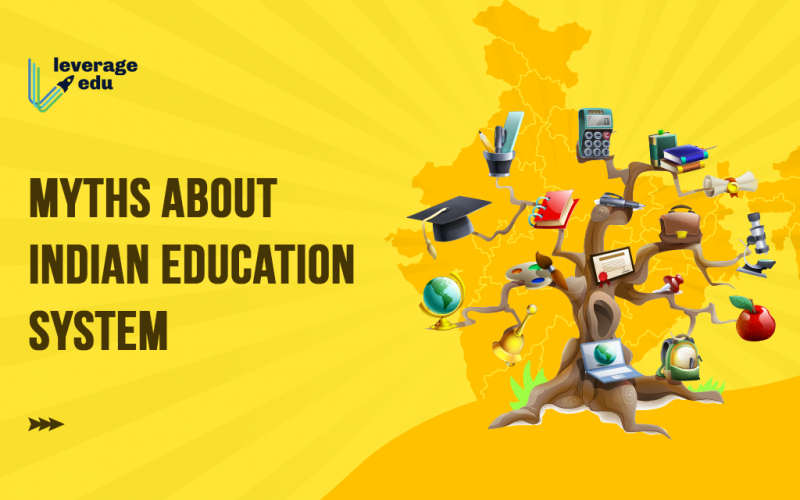Education plays a very important role in knowing the world around you and becoming who you want to be. It opens many horizons that shape your tomorrow. Though the giving and taking of knowledge is often undermined, there are various myths in the Indian education system that we need to highlight for the betterment of the children. Let’s bust some of the myths about the Indian Education System!
This Blog Includes:
Myth #1: Memorizing is Equal to Learning
Since forever, the schools have given a special spotlight towards memorizing rather than a practical learning experience for the students. In this education system, it is considered that memorizing is what learning is about. This is a huge loss as the students would be able to memorize, but without getting to know about a concept, which can even be a problem to their cognitive skills and academic performance.
Myth #2: Importance of Grades/Marks
The education system gives a lot of importance to the marks and grades scored by the student. It is considered very important, and the results matter more than the process of learning. Marks are considered to be the only criteria to evaluate a student’s performance, and it is wrong to consider that. There are a lot of factors that contribute to the mental growth of a child, and marks should not be the only criteria.
Myth #3: No Career in Arts & Humanities
The never-ending debate that happens about science being the most needed subject and that the focus should only be on STEM (Science, Technology, Engineering and Maths) subjects has left the education system with no creativity. There is a need that people start knowing about the different career paths that can be taken without the science subjects, and that interests and passion matters a lot.
Myth #4: No Questions Asked!
Many times, it is considered to be rude if a child asks questions to the teachers or the parents. The education system does not encourage the habit of questioning and fails to understand that pursuing one’s interests is also equally important for one’s happiness and health.
Myth 5: Theoretical Knowledge over Practical Knowledge
It is considered that the classes that happen between the four walls are better than students gaining practical knowledge in the real world. It is important to realize the fact that the students eventually have to face the real world, and should know how to live in this world. Thus practical knowledge is of utmost importance and there should be a good balance between the two.
Myth #6: Education can Only Happen in a School
People consider that education is what you get in a school or a college. They do not relate it to knowledge. A person can get educated despite not going to school/college. The thing that is needed is the knowledge, and that can be gained through the web and various other sources as well. It is important that the Indian education system follows and realizes the importance of knowledge rather than a degree.
Myth #7: A Single Assignment Judges Everyone Fairly
A famous saying goes, “Do not judge the fish’s capabilities by its ability to climb a tree.” But this is not how it goes in the Indian Education system. Students are judged on the same tasks, which makes it unfair for everyone. The one who scores well is a bright student and the student who does not get good marks is a dull student. It is important that they realize they need to stop judging the marks of the students.
Also Check Out:
- Current Education System in India [2021]
- Speech on Indian Education System
- Essay on Education System in India
- Future of Higher Education in India
- Countries with Best Education System
- Decoding the New Education Policy 2020 in India
The Indian education system needs a lot of changes and it can be achieved if the system is open-minded enough to analyze a child’s potential through various tasks and knowledge. Do tell us about your thoughts in the comments down below! We would love to hear your thoughts. For the latest updates around study blogs, you can follow Leverage Edu on Instagram, Twitter, Facebook and also subscribe to our newsletter. You can also join our Leverage Edu Community.

 One app for all your study abroad needs
One app for all your study abroad needs






















 45,000+ students trusted us with their dreams. Take the first step today!
45,000+ students trusted us with their dreams. Take the first step today!


